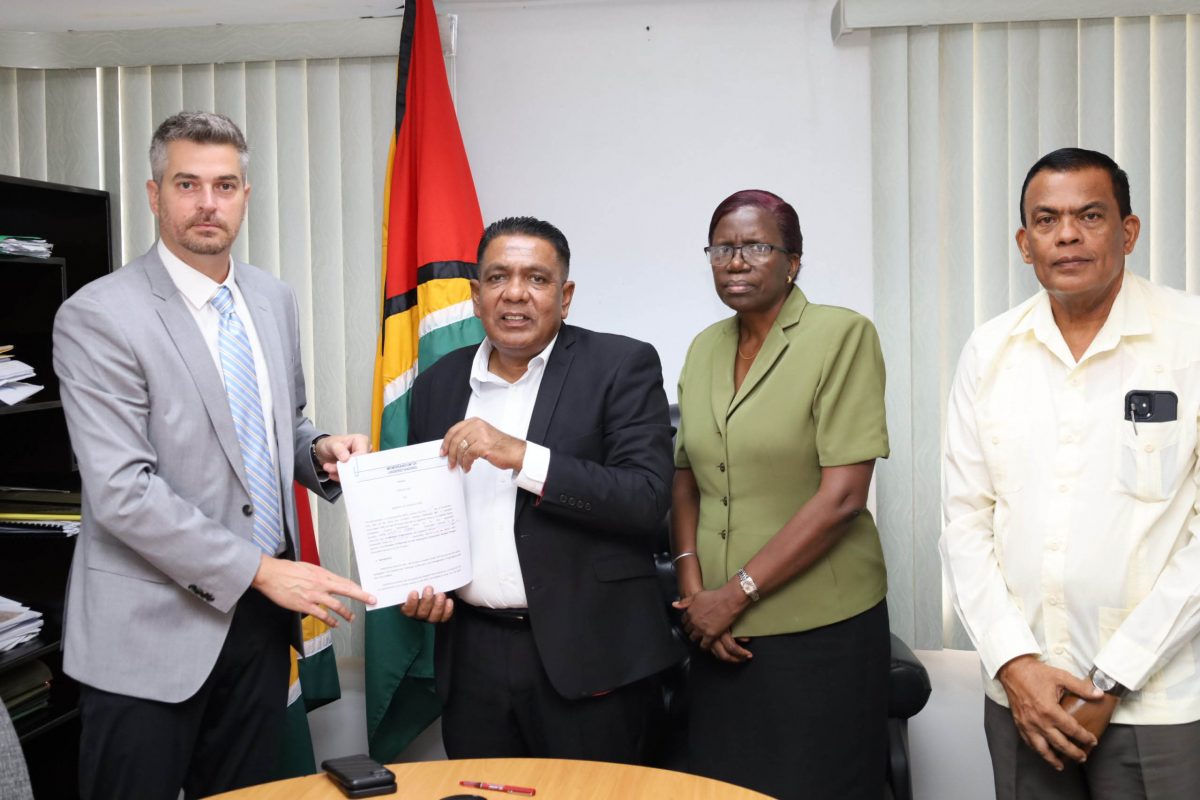The Ministry of Agriculture and KARLICO INC., an Israeli company, have signed a Memorandum of Understanding (MoU) for a US$15.7 million project that will include the construction of a hydroponic growing system in Guyana.
Hydroponics is the cultivation of plants without using soil. A hydroponic system is said to foster rapid growth, stronger yields, and superior quality.
According to a statement issued by the Ministry of Agriculture (MoA), KARLICO will be constructing a Nutrient Film Technique (NFT) system – a type of hydroponic system.
The NFT will be designed to produce fresh herbs, lettuce, and other leafy vegetables as well as other high-value crops. KARLICO INC.’s team of local and international experts is said to specialize in the development, financing, construction, and management of agricultural and agri-tech projects.
The project will be done in three phases. During the first phase of the project, the company will construct a 2,000 square metre state-of-the-art hydroponic system, and install a cold room, packaging facility, harvesting equipment, irrigation controllers, fertilizer mixers, water recycling system, and emergency water storage. This phase is expected to be completed within three months.
Phase two will entail the construction and installation of an advanced greenhouse system. Phase three would see the construction of a regional distribution centre to store, process and package vegetables, which will be delivered to local and international markets. Given the company’s expertise, the produce is expected to meet all the necessary United States Department of Agriculture and European Food Safety Authority standards and regulations.
The entire project is expected to cost US$15,750,000.
According to the statement, Agriculture Minister Zulfikar Mustapha disclosed that KARLICO is one of several investors who expressed interest in constructing a hydroponic system in Guyana. The government has been engaging KARLICO since last October about developing a large-scale hydroponic system.
Mustapha said that the hydroponic system will be integrated into the current shadehouse project that is currently ongoing on the East Coast of Demerara. To date, approximately 54 shadehouses have been constructed for the cultivation of those high-value crops.
“With climate change having a great impact on traditional agricultural practices, hydroponics, and other forms of smart agriculture, are becoming more prominent within farming communities across the country,” the statement noted.
The government has been working with CARICOM Member States to lower the regional food import bill.





